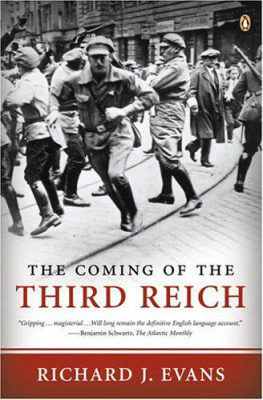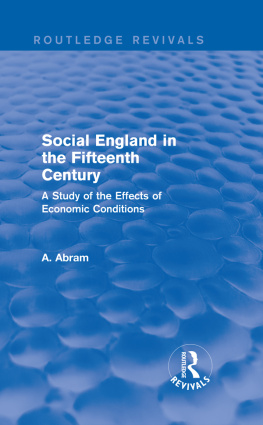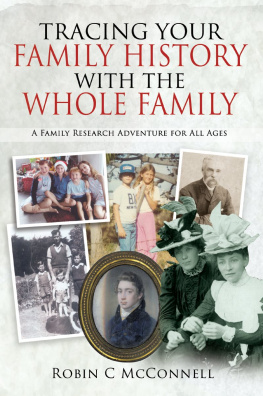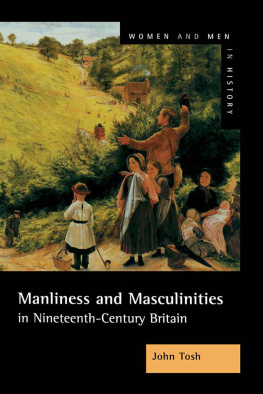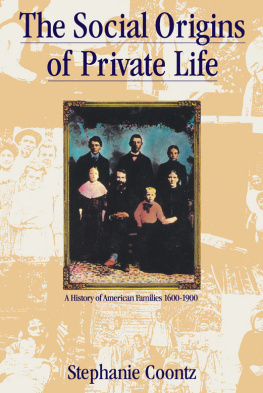
Routledge Revivals
The German Family
This book surveys the history of the German family in the nineteenth and twentieth centuries. The contributions deal with the influence of industrialisation on family life in town and country, with rural families and communities under the impact of social and economic change, and with the role and influence of the family in the lives of men and women in the newly-emerged working class.
Research on the history of the family had so far, at the point of this books publication in 1981, concentrated on England and France; this book adds an important comparative dimension by extending the discussion into Central Europe and bringing fresh evidence and interpretation to bear on the wider debate about the effects of industrialisation on family structure and family life as a whole. The authors approach the subject from a variety of perspectives, including social anthropology, oral history, economic history and feminist studies.
This book is ideal for students of history, particularly the history of Germany.
The German Family
Essays on the Social History of the Family in Nineteenth- and Twentieth-Century Germany
Edited by
Richard J. Evans and W. R. Lee
First published in 1981
by Croom Helm Ltd
This edition first published in 2015 by Routledge
2 Park Square, Milton Park, Abingdon, Oxon, OX14 4RN
and by Routledge
711 Third Avenue, New York, NY 10017
Routledge is an imprint of the Taylor & Francis Group, an informa business
1981 Richard J. Evans and W. R. Lee
The rights of Richard J. Evans and W. R. Lee to be identified as editors of this work has been asserted by them in accordance with sections 77 and 78 of the Copyright, Designs and Patents Act 1988.
All rights reserved. No part of this book may be reprinted or reproduced or utilised in any form or by any electronic, mechanical, or other means, now known or hereafter invented, including photocopying and recording, or in any information storage or retrieval system, without permission in writing from the publishers.
Publishers Note
The publisher has gone to great lengths to ensure the quality of this reprint but points out that some imperfections in the original copies may be apparent.
Disclaimer
The publisher has made every effort to trace copyright holders and welcomes correspondence from those they have been unable to contact.
A Library of Congress record exists under LC control number: 80041571
ISBN 13: 978-1-138-84378-3 (hbk)
ISBN 13: 978-1-315-73085-1 (ebk)
The German Family
ESSAYS ON THE SOCIAL HISTORY OF THE FAMILY IN NINETEENTH- AND TWENTIETH-CENTURY GERMANY
EDITED BY RICHARD J. EVANS AND W.R. LEE
1981 Richard J. Evans and W.R. Lee
Croom Helm Ltd, 2-10 St Johns Road, London SW11
British Library Cataloguing in Publication Data
The German family.
1. Family Germany History 19th century
2. Germany Social life and customs 19th century
3. Family Germany History 20th century
4. Germany Social life and customs 20th century
I. Evans, Richard John
II. Lee, William Robert
943.07 HQ626 8041571
ISBN 0-7099-0067-8
First published in the USA 1981 by
Barnes & Noble Books,
81 Adams Drive,
Totowa, New Jersey, 07512
ISBN: 0-389-20101-4
Typesetting by Elephant Productions, London SE15
Printed and bound in Great Britain
by Billing and Sons Limited
Guildford, London, Oxford, Worcester
To Jody, Kitty Stoat, Silver Sands, Tibs and Tigger, who, alas, are no longer able to have families of their own.
CONTENTS
Robert Lee
Karin Hausen
Robert Lee
Gerhard Wilke and Kurt Wagner
Arthur E. Imhof
Heilwig Schomerus
James H. Jackson
Robyn Dasey
Richard J. Evans
This book is a collection of essays, all of which appear in English for the first time, and only one of which has been published anywhere before, on the history of the German family in the nineteenth and twentieth centuries. The authors and their contributions are drawn from a number of disciplines, and they approach the subject from a variety of perspectives, including social anthropology, oral history, quantitative demography, economic history, feminist studies, political history, collective biography and the history of ideas. The research techniques represented range from participant observation to computer-assisted statistical analysis. The study of family history, a relatively recent development in historical scholarship, must necessarily be interdisciplinary in orientation if it is to realise its full potential, and while quantitative studies have a vital role to play, it is important to realise that they have their limitations as well. These limitations can only be overcome by recourse to other disciplines, methods and sources, though this does not mean, of course, that the historian should be indiscriminate or uncritical in doing so. By presenting a wide range of different theoretical and methodological perspectives on the subject, this volume hopes to make a general contribution to family history as an area of historical investigation as well as a particular contribution for the country with which it is concerned.
A second purpose of this collection is to extend the discussion of central problems of family history to a new geographical area. The pioneers of new methods and approaches to the history of the family, above all, historical demographers and the social historians of the Annales school, concentrated their attention on pre-industrial France. More recently, studies have begun to appear on rural England and America. Historians of these countries have also started to turn their attention to family life in industrial towns. It is only within the last few years, however, that the history of the family has become an acceptable subject for scholars in Germany, for its perversion for racial and eugenic purposes during the Third Reich rendered it taboo for a whole generation of German historians during the 1950s and 1960s. Despite this, however, Germany has a long tradition of the sociology of the family, submerged or driven into exile by the Nazi regime. There are numerous empirical sociological studies of family life dating from the period before the First World War, and the sources available for original research are at least as rich as those for France, and in some respects better. Moreover, unlike France or England, Germany underwent an industrialisation and urbanisation process of extreme rapidity and intensity, making it an exceptionally valuable field for the investigation of the relationship of industrialisation and social change, not only in the area of family history, but in other spheres as well. It is largely for this reason but also as a reflection of the existing focus of historical scholarship that we have chosen to concentrate in this collection of essays on the period of industrialisation and the spread of the capitalist mode of production.






